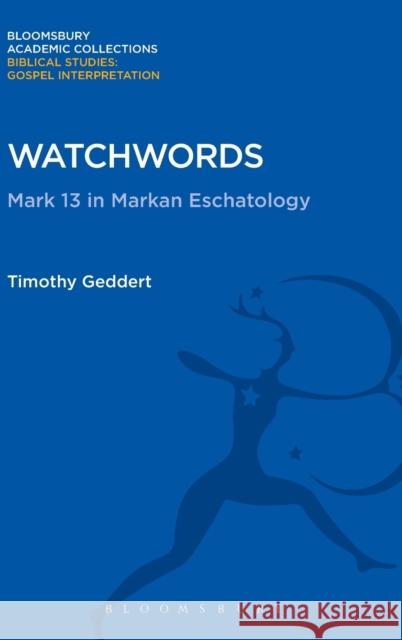Watchwords: Mark 13 in Markan Eschatology » książka
Watchwords: Mark 13 in Markan Eschatology
ISBN-13: 9781474231305 / Angielski / Twarda / 2015 / 368 str.
Mark has written a remarkable Gospel. Deceptively simple on the surface, its mystery and ambiguity have intrigued and challenged scholar and lay reader alike. Through veiled clues, controlled word usage and carefully contrived ambiguity, Mark embeds profound theological reflections in the stories he tells. The eschatological discourse (Mark 13) is a prime example. Modern scholars have attempted in vain to eliminate the ambiguities of Mark 13. Does Mark expect the End to come very soon? What is the relationship between the Fall of the Temple and the End of the Age? But the evidence indicates that Mark has deliberately produced the very uncertainty which has troubled scholars and which they want to eliminate. In Mark, attention is diverted from 'signs' and 'evidences' to the twin and inseparable themes of 'discernment' and 'discipleship'. These themes are captured by the two primary 'watchwords' of Mark 13, which call believers to understand the significance of events they experience and to serve (and if necessary suffer) faithfully in the unknown period before the return of the Son of Man. In his communication techniques, his content and his priorities, Mark models himself after the Jesus he portrays. He calls readers, as Jesus called disciples, to follow and to understand - and sometimes to follow without understanding - until the unknown future when the Son of Man will reveal in its fullness the Kingdom now secretly present for those with eyes to see and ears to hear.











